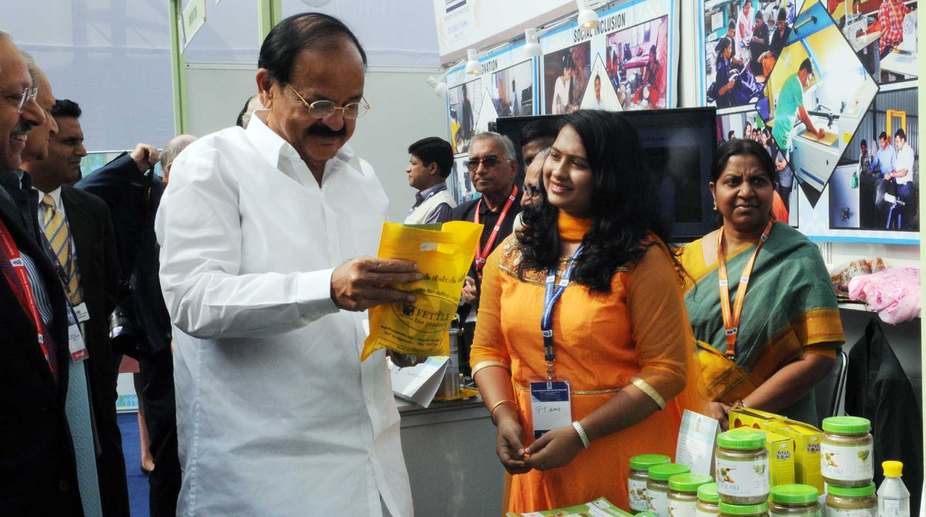Telangana CM honours Venkaiah Naidu and Chiranjeevi
The chief minister also announced a monthly pension of Rs 25,000 to poets and artists from Telangana who were recipients of Padma awards.

Venkaiah Naidu (Photo: Twitter)
At a time of tepid job growth and continuing income disparities, the major challenge is to make the youth of the country entrepreneurial and not job seekers, Vice President M Venkaiah Naidu said on Thursday.
“Disparities continue to remain in India and so there is need for inclusive growth… there is the need to take care of the suppressed, oppressed and depressed,” Naidu said at the Bharatiya Yuva Shakti Trust’s (BYST) silver jubilee celebrations here with Britain’s Prince Charles as the chief guest.
“The challenge for us is to make the youth entrepreneurial, and not become job seekers,” he said pointing to the NDA government’s various initiatives to encourage youth enterprise like Startup India, Standup India and the Mudra financing scheme for underprivileged sections.
Advertisement
Modelled on Prince Charles’ Trust for business startups, BYST, founded by Lakshmi Venkatesan, daughter of former President R. Venkatraman, is engaged in building rural entrepreneurship — “grampreneurs” — as also enterprise among under-privileged sections, which includes business mentoring. The current BYST chairman is Bajaj Group chief Rahul Bajaj.
“Without mentoring, it would be very difficult to set up startups, with all the business, marketing and other vital issues involved in the first two-three years,” Prince Charles said in his address at the International Mentoring Summit organised by BYST to mark its 25 years.
“What amazes me are the sheer number of jobs these young entrepreneurs had created. The aim of such a project should be to create a virtuous cycle of creating entrepreneurs who can then invest in the future of business,” Charles said referring to his trust.
BYST was officially launched in 1992 by Prince Charles and expanded its operations to six major regions of India.
Out of these six regions, four — Delhi, Chennai, Pune and Hyderabad — run the urban programme while two regions — Haryana and Maharashtra — run the rural programme.
Advertisement